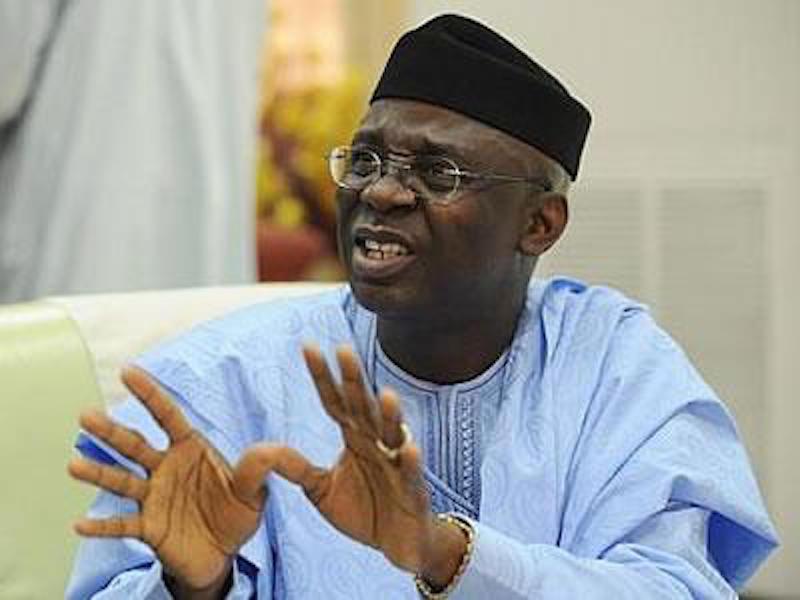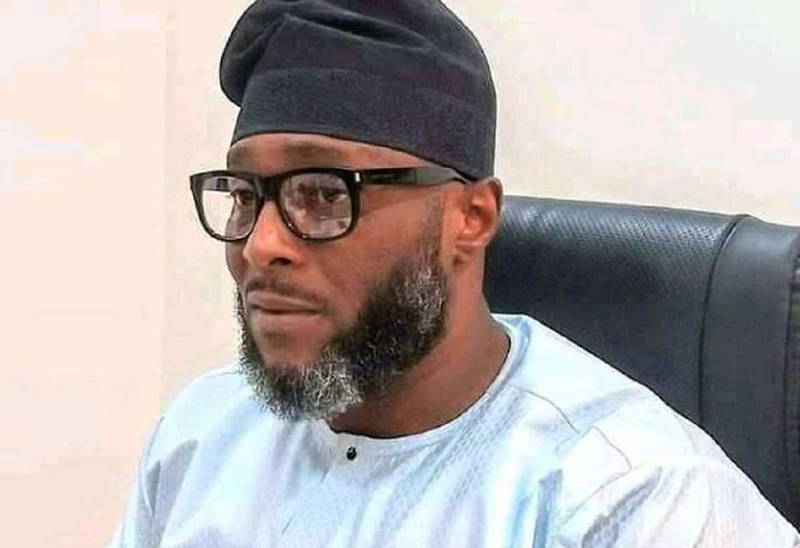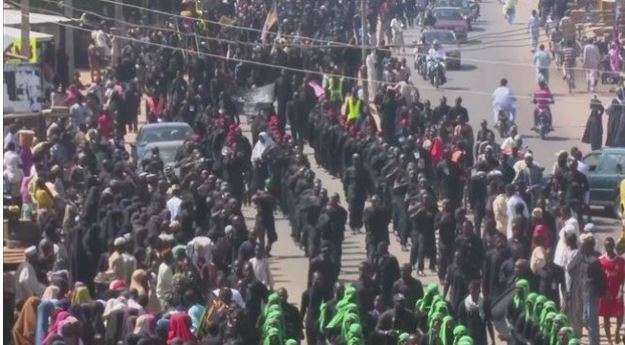Over the centuries, the phrase “the pen is mightier than the sword” has come to define the power of the written word in statecraft. Those words have since stepped out of the pages of Edward Bulwer-Lytton’s The Conspiracy, a play written in 1839, to become words on marble.
At the heart of this notion of the might of the pen is the idea that the course of a nation or people can be determined at the stroke of a pen. Nations can be built, and nations can be ruined; generations can be made great, and generations can be rendered wasted; civilizations can be birthed, and civilizations can be buried – at the stroke of a pen!
At the stroke of a pen, millions of Africans were “legally” transported across the Atlantic and Mediterranean and became the property of slave owners. At the stroke of a pen, the slave trade was abolished centuries later and emancipation was proclaimed to former slaves, thus formally criminalising an immoral enterprise. At the stroke of a pen, the kingdoms and city states of Africa were partitioned and transformed into the estates of European monarchs. At the stroke of a pen, cultures were dismembered, nations were balkanised, and territories were amalgamated into colonies and protectorates. Decades later, colonies and protectorates became independent states – at the stroke of a pen.
We have seen frameworks become supreme law and proposals become policies that make or break nations; we have seen elections validated or annulled; we have seen presidents sworn in, some by convention, others by the doctrine of necessity – all at the stroke of a pen. Families are consolidated or dissolved, enterprises are incorporated or liquidated, convictions are obtained or upturned, and life and death could hang on a simple but weighty sentence, held in the balance by a pen waiting to be wielded, particularly when the ink that runs through the pen is propelled by the force of the state.
We have also seen world changers who, when the pages of history parted for them to emerge, proceeded on their journeys without the backing of the state and forcefully turned the wheel of civilisation at the stroke of a pen. At the stroke of a pen, the doctrinal chains that held the church and the nations in a stranglehold were dismantled when a German professor of theology, Martin Luther, reminded the world that the just shall live by faith. Here, I am referring to the “Ninety-Five Theses” he nailed to the door of the Wittenberg Cathedral in 1517.
At the stroke of a pen, the people of Great Britain began their journey to freedom from the tyranny of monarchy to parliamentary democracy – history calls it the Magna Carta. At the stroke of a pen, the people of the United States declared their independence from the colonising power of the British Crown – they called it the Declaration of Independence. At the stroke of a pen, the people of France broke the spell of an oppressive monarchy and took control of government – history records it as the Declaration of the Rights of the Man and of the Citizen. At the stroke of a pen, Karl Marx and Friedrich Engels sparked the flame of revolution among the proletariat of Russia and Eastern Europe – they called it the Communist Manifesto.
The likes of Dr. Nnamdi Azikiwe, Kwame Nkrumah, and Chief Obafemi Awolowo, armed with no other weapon, mobilised the Queen’s language in the struggle for independence from the Queen. They fought their battles through such media as West African Pilot, Accra Evening News and The Tribune. Decades after independence, when free, fair and credible elections were annulled, and a tyrannical dictatorship held sway, the Nigerian press took up the baton and contended against the sword of oppression by deploying the armoury of vocabulary. I am so glad that the labours of these pen warriors and all others who fought for the democracy we enjoy today have not been in vain after all.
From now on, any time the name Bashorun M.K.O. Abiola GCFR – Grand Commander of the Order of the Federal Republic – is mentioned with full honours, it is an honour first to the man who paid the supreme price to pave the way for Nigeria’s democracy, and then to the heroes and heroines who stood up behind him, including those in the Fourth Estate of the Realm who marshalled the written and spoken word against tyranny. Indeed, the members of the press who fought for the June 12 mandate were fighting not just for democracy but in defence of one their own, for, amongst his many endeavours, Bashorun M.K.O. Abiola was a media entrepreneur and founder of the African Concord, where Dele Momodu, the man at whose behest we are gathered here today, cut his teeth as a journalist.
I totally agree with Ralph Waldo Emerson that “talent alone cannot make a writer: there must be a man behind the book.” Bashorun Dele Momodu and his ilk have proved themselves over the years to be real men. In addition, by deploying their skill against tyranny, the members of the press have aligned themselves with a biblical truth that recognises authorship as an instrument of battle, because the same God who is militarily presented in Psalm 18:2 as “the horn of salvation” is revealed in Hebrews 5:9 as the “author of salvation.”
My reference to the Bible at this juncture reminds me of Dele Momodu’s desire to be a pastor, which I first heard him express in the course of my 60th birthday celebrations. Pastor Dele, I believe that, even without the benefit of a conventional pulpit, you have already shepherded the nation with the flow of wisdom from your pen. Over the years, I have read your writings and I have seen you not only advising presidents on appropriate courses of action at crucial junctures in our national trajectory, but also warning them on the consequences of inappropriate responses to our national dilemmas. This is the manner of prophets such as the biblical Amos, a “herdsman and a dresser of sycamore figs” , whose distinguishing feature, it must be said, was not that he possessed an AK-47. Instead, he was a man to whom the word of God for his nation was revealed when that nation was being misled by a corrupt governmental order.
Dele Momodu, a publisher by profession, who understands that a picture is worth a thousand words, has become a pen prophet by vocation, and a consistent conduit of wise counsel to the leadership of our nation. I am glad to see his writings compiled for the present and posterity in two of the books being launched today. And like Winston Churchill who said “half my life time I have earned my living by selling words, and I hope thoughts”, may Bashorun Momodu prosper by his words and thoughts.
In 2011, when the leaders of our nation failed to heed his counsel and warnings, Dele Momodu could not fold his arms and watch the nation go down the drain. He momentarily dropped his pen and jumped into the fray. As a man irrevocably committed to the people, Dele Momodu pitched his tent with a political party that had been instituted by a defender of the people; a man upon whom the people had already conferred an award no government award could ever match. Dele Momodu aligned himself with the political apparatus instituted by my late boss and mentor, Chief Gani Fawehinmi, Senior Advocate of the Masses, later Senior Advocate of Nigeria, and now Grand Commander of the Order of the Niger (GCON). While Dele Momodu lost the 2011 presidential election, he didn’t lose the lessons and I am pleased that his experience has been chronicled in the third book being launched today, Fighting Lions: The Untold Story of Dele Momodu’s Presidential Campaign, written by his Campaign Director, Ohimai Godwin Amaize.
I understand that Fighting Lions captures Dele Momodu’s disappointment at the lack of support from his own constituency, the media and entertainment industries, in the 2011 elections. I am pleased to let you know that I am not a brother who is not touched by the feelings of your infirmity, for I also faced the same temptation you did, and so did my friend, Fola Adeola, but the grace of God saw us through.
It is no news that I participated in the same election as running mate to our current president, Muhammadu Buhari. With the negative image associated with the then General Buhari, especially the allegations of religious fundamentalism, being his running mate as a pastor was not an easy task at all. Need I tell you that my strongest critics were from my constituency? To most leaders in the church, aligning with a man they considered an opponent of Christianity against another they considered a Christian was sacrilegious, to say the least. To them, I was a traitor, undeserving of support. Therefore, I understand Dele Momodu’s disappointment. Our experience mirrors that of Joseph who was sold by his brothers because of the dream he had.
However, I do not think that the effort was in vain. Instead, I thank God that I took up the challenge and became a barrier breaker. Four years later, when the mantra became “Anything but Jonathan”, the same church leaders who had said it was inconceivable for a pastor to participate in politics, especially in alignment with a perceived Islamic fundamentalist, ate their words and threw their weight behind the same Muhammadu Buhari, with my brother, Professor Yemi Osinbajo, a pastor at the Redeemed Christian Church of God, as running mate.
I am also aware that, in 2015, the press, represented by the likes of Dele Momodu, played a role in redefining the narrative and presenting to the Nigerian public a Buhari they could relate to. That year, in addition to other things I did in the background to ensure that the will of the people counted irrespective of the outcome, I recall telling the nation of “The Buhari I Know” just to ensure he was given a fair chance untainted by a negative brand image.
Now, three years later, it appears, once again, that the people are experiencing buyer’s remorse. Interestingly, the likes of Dele Momodu and I are being blamed for allegedly packaging the current dispensation. It is, however, necessary to remind the nation that there were warnings. We had warned then that plunging headlong into another election cycle without addressing what I called the fundamentals was tantamount to putting the cart before the horse; but when the nation was adamant and wanted its way, like the prophet Samuel did when Israel demanded a king against divine counsel, we played our part to ensure that the interest of Nigeria was kept paramount.
I am glad that neither the disappointments of the 2011 elections, nor the stiff-necked response of those in power to his propositions and warnings, have been strong enough to deter Dele Momodu in his steadfast service to the nation from his power slot as a media icon. Instead, he has intensified his contributions just so Nigeria can rise to her potential as a great nation regardless of who is in government. It is that dogged belief in the Nigerian dream that has brought us here today, at a time when the countdown clock to elections reads 219 days but the Nigerian dream is yet asleep and her structural defects glaringly acute.
At this critical moment in our national life, the words of the French emperor and warrior, Napoleon Bonaparte, are worthy of mention. He said, and I quote: “A journalist is a grumbler, a censurer, a giver of advice, a regent of sovereigns, a tutor of nations. Four hostile newspapers are more to be feared than a thousand bayonets.” I sincerely pray that all the stakeholders, especially the press and the intelligentsia, will play a pivotal role in setting the agenda for the polity in 2019.
The writings of Dele Momodu have, over the years, addressed some of the fundamental issues facing our nation. I am confident that he, as well as other opinion moulders, will intensify efforts to ensure that the welfare and security of our people, as well as the overall development of our nation, become the main discourse at this pivotal moment. This is the purpose of any government worthy of the name.
Finally, to a nation in the throes of violent agitations, to the people of our nation who want their fair share, and to young people running out of patience, the lesson from Dele Momodu is very clear and simple: spill the ink, not the blood; paint an indelible picture of the nation you desire, and work tirelessly to ensure its realisation, knowing that the greatness of our nation depends on it. If we follow that counsel passionately, we shall, by God’s grace, see a nation that works in our lifetime.
Thank you for listening, God bless you, and God bless our nation, Nigeria.
• Being keynote address by Pastor Tunde Bakare at the public presentation and launch of Pendulum 1, Pendulum 2 and Fighting Lions by Dele Momodu. Bakare is Serving Overseer, The Latter Rain Assembly (LRA) and Convener, Save Nigeria Group (SNG).

 Boss Of The Week3 days ago
Boss Of The Week3 days ago
 Featured5 days ago
Featured5 days ago
 Middle East3 days ago
Middle East3 days ago
 The Oracle4 days ago
The Oracle4 days ago
 Headline5 days ago
Headline5 days ago
 News5 days ago
News5 days ago
 Islam4 days ago
Islam4 days ago
 Opinion3 days ago
Opinion3 days ago














